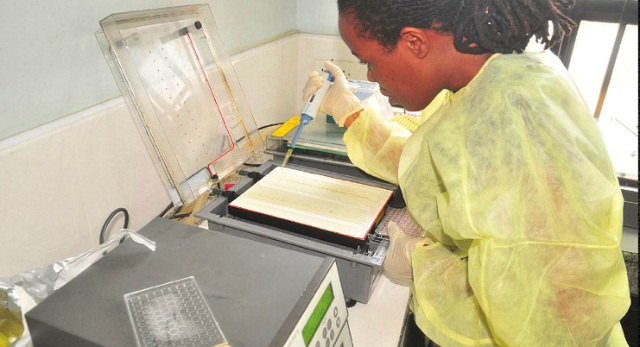
Luwero, Uganda | THE INDEPENDENT | A sickle cell clinic at Luwero hospital is struggling to offer medical treatment to patients following the death of its funder.
The clinic was set up by Mable Nakato, the Director of Holly Foundation in 2011 to cater for patients from Luwero, Nakaseke and Nakasongola. Nakato, then a UK-based Ugandan said she was inspired to help the patients after her child was also diagnosed with sickle cell disease.
She supported awareness campaigns in the districts and during that time, the clinic enrolled 1,321 patients. Of these, up to 321 patients got treatment from the clinic every month, and Nakato donated 15 million Shillings towards the purchase of essential drugs and support to volunteers.
Fred Lutaaya, a senior counsellor at Holly Foundation says that Nakato also donated livestock and poultry among other items to boost household incomes among families living with sickle cell patients. However, Nakato 52, died in May this year, a development which comes as a blow to the clinic which is currently operating with inadequate supplies.
Aisha Namakula, a resident of Galuwero zone in Luwero town council says that due to rampant stock-outs, patients are now referred to private pharmacies to buy drugs yet they are poor to afford them. Namakula adds that the clinic has also been relocated to a small room which is not enough to cater for the overwhelming patients who turn up only two days a week.
Joseph Kateregga, a sickle cell patient who has been benefiting from the supplies asked the government to increase support to the clinic to cover the gap left by the late Nakato. Kateregga decried the shortage of folic acid, an essential nutrient they need to help them produce red blood cells in the bone marrow.
William Lutabi, a father of a 10-year-old sickle cell child says that Nakato’s livestock projects have been helping them to get money to transport the patients to the clinic, but also used some of the eggs to feed the children suffering from the disease.
Doreen Nantongo, the officer in charge of the sickle cell clinic at Luwero hospital, says that they are still committed to offering support to patients despite the challenges. Similarly, Evelyn Mwesigwa, the Sickle Cells Programmes Officer at the National Laboratory, Ministry of Health says that Nakato set a good foundation for sickle patients and that her work will continue despite the challenges.
She asked other organisations to support the volunteers and the clinic to continue offering the necessary support to patients.
Sickle cell disease is a genetic disorder affecting red blood cells making them unable to efficiently carry oxygen around the body cells. This abnormality is inherited from both parents who are both carriers and sicklers.
According to the Uganda Demographic and Health Survey (UDHS), 2016, the sickle cell disease prevalence stands at 0.73 while the trait prevalence stands at 13.3 per cent and it is estimated that 25,000 babies are born annually with the disease with 80 per cent dying before their 5th birthday.
The 14 districts with the highest sickle cell disease and trait are Kampala, Gulu, Lira, Jinja, Tororo, Luwero, Wakiso, Apac, Iganga, Mayuge, Buikwe, Oyam, Masaka, and Masindi.
*****
URN
 The Independent Uganda: You get the Truth we Pay the Price
The Independent Uganda: You get the Truth we Pay the Price



Government and well-wishers should provide funding.
How can one get in touch with the directors in case of some donates.